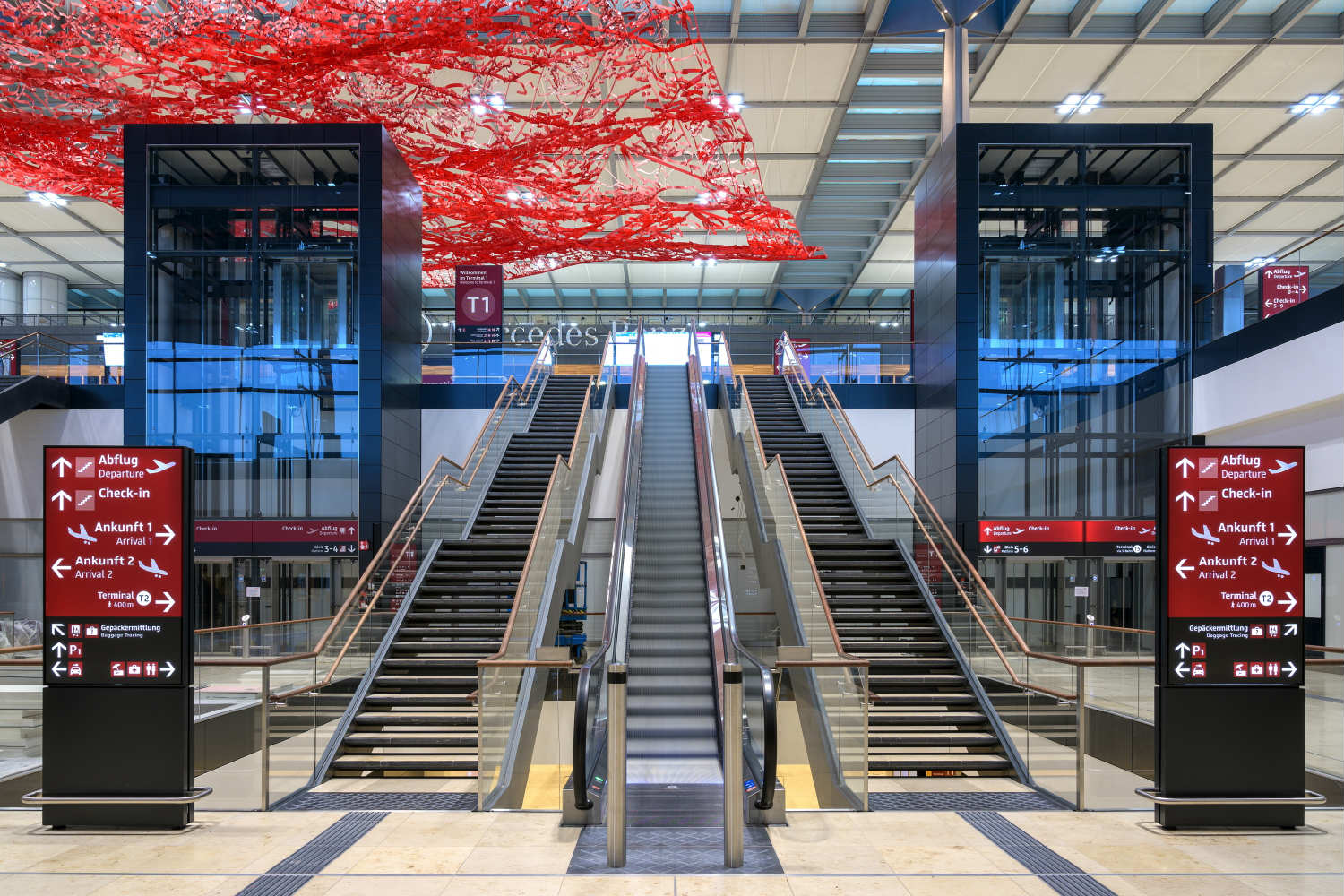Berlin’s new international airport can open next month after an embarrassing nine-year delay despite the coronavirus pandemic taking a big bite out of air travel, its chief manager said Tuesday.
“On October 31, 2020, BER will open,” the boss of the new facility, Engelbert Luetke-Daldrup, told reporters.
“The German capital will finally have an airport that meets international standards.”
Terminal 1 of the airport located on the southern outskirts of Berlin will be inaugurated with departures by German flag carrier Lufthansa and British no-frills airline EasyJet.
A few shops and a tourism office will also open their doors the first day, but other terminals will have to wait until next year to serve passengers, Luetke-Daldrup said, due to a drop in demand because of the Covid-19 outbreak.
The current Schoenefeld airport located nearby will become Terminal 5.
Social distancing measures, however, will put a damper on the planned celebrations.
“There won’t be a big party, just an opening,” Luetke-Daltrup said.
BER was set to open in 2011 but the date was repeatedly pushed back over a series of issues, including fire safety and corruption.
In the meantime, the cost of the facility exploded to 6.5 billon euros ($7.6 billion) from a 1.7-billion-euro budget initially.
“The road to the opening wasn’t easy,” Luetke-Daldrup admitted, noting the “shame” felt by German engineers over a project that became a running joke among locals.
READ ALSO: Arik workers, management negotiation hits deadlock
After nearly a decade of repeated gaffes and scandals, he said, “there’s no reason to boast”.
Before the onset of the pandemic, which has reduced passenger air traffic by more than 60 percent this year, BER was seen as already too small to accommodate the region’s needs.
Nevertheless, Berlin’s main airport, Tegel, will close November 8 following the takeoff of an Air France flight to Paris.
Beloved for its retro look and unusual proximity to the city center, Tegel welcomed more than 24 million passengers in 2019, making it the fourth busiest airport in Germany after Frankfurt, Munich and Duesseldorf.
It was built in just 90 days by German workers with French and American Allied forces during the Soviet blockade of Berlin in 1948-1949.
Together with the Tempelhof airport, which became a public park after it closed in 2008, Tegel supported the Allied airlift operations to supply the population of West Berlin with food.
(AFP)













